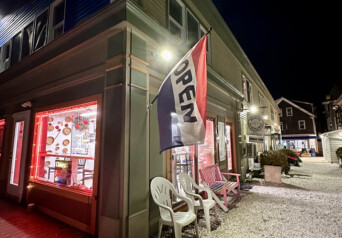Small Business Advocacy The concentration in the U.S. food industry impacts all of us, especially local food producers
Corporate consolidation in the American food industry has led to higher prices, lower quality, and less choice for consumers. But as consumers and business owners, we can fight back.
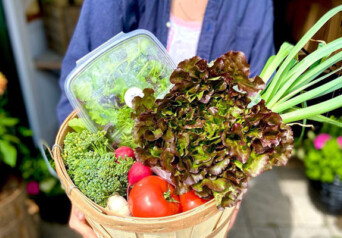
- Post Date
- Tue, Jul 6
- Small Business Advocacy
Despite the illusion of choice, the American food industry is one of the most highly concentrated with just a few corporations dominating each sector, limiting opportunity for and potential of small, local food producers. The Farm Action Alliance states that “no greater concentration of corporate power, monopolistic practices, and exclusion of economic prosperity exists than in the food and agriculture markets.” This has been allowed to happen all in the name of efficiency and cheaper prices, but the reality is that bigger does not always mean better quality, especially when it comes to the food we eat.
Walking into a grocery store in most communities across the U.S. it is easy to be overwhelmed by the sheer number of choices shoppers have for food items from produce and meat to milk and bread. What most people do not realize is that most of the items in the grocery store aisles are produced by a handful of mega corporations that dominate the industry.
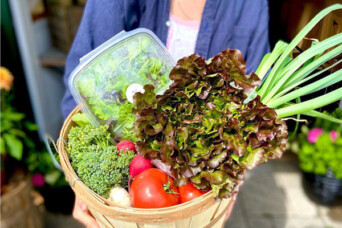
According to Break ‘Em Up by Zephyr Teachout three processors – Tyson, Pilgrim’s Pride and Perdue – are responsible for buying and selling every chicken in the $90 billion American industry. Four corporations – Cargill, Archer-Daniels Midland, Bunge, and Louis Dreyfus – control close to 90 percent of the global grain trading business, and now four firms control about 85 percent of the national beef packing market, 85 percent of soybean processing, and 63 percent of pork packing. What’s more, Kraft Heinz sells 60 percent of all ketchup, PepsiCo sells nearly 60 percent of all chips, McCormick sells almost half of all spices, and Dean Foods owns most of the brands in the dairy section, and the list goes on.
This is not, however, where the corporate influence and control over U.S food markets ends.
Over the last forty years the American food supply chain, the inputs and outputs of food production have become concentrated in the hands of a shrinking number of giant multinational corporations. Monsanto owns most of the seeds farmers plant (which are often only good for one season); the fertilizers they use for cultivation; and the pesticides they apply to their crops. Additionally, John Deere not only dominates the farm equipment and machinery market, but also forbids farmers from editing tractor software, which means they cannot change engine settings, can’t retrofit old equipment with new features, and can’t modify their tractors to meet new environmental standards without going through the manufacturer (this increases costs and the amount of time lost waiting for repairs to be completed).
Much of this consolidation has been able to happen as policymakers looked the other way, allowing larger companies to acquire their smaller competitors without any scrutiny, as well as enabling them to vertically integrate, buying up companies that are involved in other stages of food production, so farmers rely on the same corporation to purchase seeds and inputs, process raw materials, and manufacture products like animal feed and corn syrup.
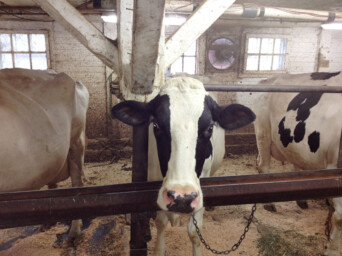
This kind of domination in the market has had a detrimental impact on medium-sized and small farms, the food stocked in grocery stores, as well as puts the security of the whole system at risk.
When just a few companies control the channels by which food products make it to market, it leaves farmers with limited options with whom to do business and enables the corporations to dictate price. In recent years allegations of price fixing have been made against beef, tuna, chicken, turkey, egg, pork and peanut conglomerates, where farmers on both the land and sea have been paid a lot less for the product than they have previously, while consumers are charged more. Since 2015, cattle prices have decreased by 35 percent while retail prices have increased by 8 percent. For the major meatpacking companies, buying low and selling high translates into much bigger profits. According to Sally Hubbard in her book Monopolies Suck, an average of 17,000 cattle ranchers have gone out of business every year since 1980.
Similarly, Monsanto who is one of the four dominant sellers of many of the inputs for growing produce has significantly increased the cost of doing business. According to Teachout, “to plant an acre of corn in 1990, it used to cost $100 for everything. Now it costs over $400 per acre.” Factors such as this has caused what the Institute for Local Self Reliance calls an “economic crisis across much of rural America.” From 2013 to 2018, net farm income dropped 52 percent; farmers are now shouldering more than $400 billion in debt, and their communities are losing their economic and cultural foundation. And unfortunately government farm subsidies aren’t going to save them since between 1995 through 2014, almost 90 percent of agricultural subsidies went to the largest 20 percent of farms.
Not only does this corporate concentration devastate local economies and completely discourage the next generation of farmers and fishermen, but it is also of grave concern when it comes to the country’s food security. Hubbard writes, “Consolidation of the food supply chain leads to massive bottlenecks and locks farmers into contracts for dominant buyers, meaning farmers can’t redirect their products to other plants or purposes.” So, when giant plants closed because of the COVID-19 pandemic, farmers euthanized their animals by the thousands, and meat processing capacity was reduced by nearly half. Or as Rep. Rosa Delauro (D-CT) told The American Prospect, ‘If one event like the cyber-attacks can shut down almost 25 percent of beef-processing capacity, we have a really big problem. We have such a consolidated industry that any one separate event can cause this big of a disruption.’
These large industries also attract large private equity firms and foreign companies, who buy up domestic farmland and fishing quotas, tend to lack transparency, and take jobs and resources out of rural communities, accelerating social and economic decline and suppressing the growth of independent businesses.
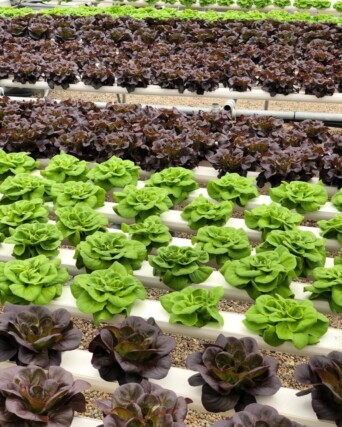
Here on Cape Cod where there are hundreds of small working farms, many of them have bypassed this consolidated food system by doing what many of their fellow farmers across the country have done – turned to the local community, selling direct to consumers at their own farm stands and at farmers markets as well as at local markets and restaurants.
According to Gretel Norgeot, owner of Checkerberry Farms in Orleans and the Market Manager for the Orleans Farmers Market, this has worked quite well for farmers across the Cape, as people welcome the ability to connect and have one-on-one time with their local farmers at the farmers markets, as well as to get fresh, quality, more nutritious food that hasn’t traveled thousands of miles to reach your plate.
But Norgeot notes just because they’ve found an alternative way to connect to consumers doesn’t mean that the corporate food industry doesn’t have an impact small farms here on Cape Cod, “a lot of things affect us that they don’t know affect us.” One issue she has run into is some of the expectations and perceptions that have been set by large corporations around the availability of fresh produce year-round (the local growing season is short but sweet). She ran into another challenge with regard to misunderstanding the difference between small and corporate growers when she was selling spinach at a market at the same time there was large-scale contamination of the crop by a large farm in California; a customer questioned how she could still be selling the vegetable, not understanding that local farms like hers are not tied into the large-scale system that is much more susceptible to that type of contamination.
For our local small boat fishermen, it can be a bit more complicated to reach the consumer. Although fishing families like the Merls, who operate their day boat F/V Isabel and Lilee year round out of both Chatham and Provincetown, sell their scallops directly to seafood lovers at local farmers markets, to reach a larger audience and adhere to state regulations they must link up with a large processor and distributor who in turn sells their products to fish markets and restaurants. Denice LaPierre (Merl) who manages the business, feels fortunate to work with Red’s Best out of Boston (there are no processors located on Cape Cod) who is “supportive of small boats and getting their catches back to the community.”
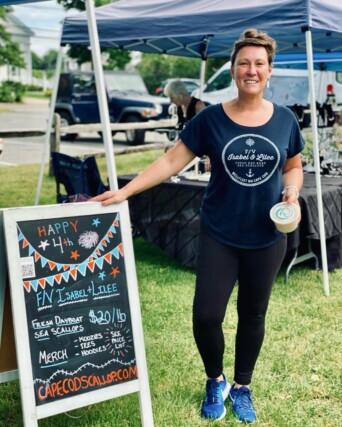
There is concern that small family-run businesses like the Merls are going to be fewer and far between as big corporate interests take more of an interest in the fishing industry as they have in agriculture, even right here on Cape Cod.
According to Seth Rolbein, Director at the Cape Cod Commercial Fisherman’s Alliance, “about a decade ago the federal government changed the way it regulated the fishing industry, from effort to quota.” So, each year the total allowable catch is calculated using scientific data and each local fisherman in the community gets a percentage of the allowable quota, creating assets for every individual fisherman to lease, sell, or fish. However, boats like the F/V Isabel and Lilee were allotted about the equivalent of one day of fishing, and if Chris Merl, who has been fishing the Cape Cod waters for over 30 years, wants to continue to make a living at it, he has to buy quota from someone else.
This is when, according to Rolbein, “large corporate interests began to move into the community” and ownership of the quotas began to move off-Cape. Big companies and private equity firms started buying up quota from retiring fishermen and those that simply could not afford to purchase more quota than what they were allocated. And now we see vertical integration in the fishing sector (mostly in larger boats) where there are instances where the corporate processor owns the quota, the fishing boat, the processing capacity, and the distribution mechanism.
For their part, the Alliance also started buying up local fishing quotas and putting them in a trust to keep some of that ownership here on Cape Cod, making the quotas available at a subsidized price for local fishermen. So that “someone else” the Merls must purchase additional quota from is indeed the Cape Cod Commercial Fisherman’s Alliance, as well as a private equity firm whose prices go up every year. And, as many have noted, who have their eyes set on the flats of Cape Cod, home to oyster and clam grants farmed by many local shell fishermen.
It was important for the Alliance to counteract the influence of private equity ownership, because as Rolbein says “the goal of any private equity is to improve profit and efficiency, but it has no social purpose and is not intended to help people. Their goals are different than the Alliance and the community.”
The Alliance and organizations like theirs are not the only ones who can and should be fighting against the corporate concentration that is pervasive in the food industry. All levels of government play a role in putting up the rails on this show of unfettered capitalism, and as always, local consumers play a part too.
As both Rolbein and Norgeot note the United States Department of Agriculture is the federal agency that has the most influence in this area but are often disconnected from the needs of smaller farming communities. The USDA is a large purchaser of food, buying for schools, prisons, the military and food banks, but as Rolbein says “food distribution has typically selected against small food producers” and they need to push to try and change that by decentralizing purchasing which would allow small producers to participate. The federal government – Congress, the Department of Justice, and the Federal Trade Commission – can and should also break up big agribusiness corporations and unwind vertical integration wherever it exists.
At the state level, Massachusetts legislators can continue to expand “right to repair” laws, enabling farmers to have their farm equipment repaired and updated by independent mechanics and not be required to go to the manufacturers. State governments can also limit the number of subsidies doled out to large agribusinesses, prioritizing local businesses instead. And they can prioritize small producers when purchasing their food for state agencies and institutions.
The Barnstable County government, along with our local towns can develop a countywide plan to increase the availability and opportunity for locally grown, caught, and raised food, as well as encourage local grocers to set up shop through policies like property tax abatements and rent reductions. State and local governments can also institute zoning ordinances to encourage the proliferation of locally owned grocers. Independent grocers like Friend’s Marketplace, Ring Brothers and Windfall Market carry more local food and food products, creating more opportunity for local businesses.
But resisting the corporate takeover of our food systems requires more than just a top-down approach, and Norgeot emphasizes the importance of consumer education by food producers and the organizations that support them like the Alliance, Buy Fresh Buy Local Cape Cod and even us at Love Live Local. Consumers have a large role to play by advocating for the measures outlined above, demanding more transparency in where their food comes from and who is producing it, and by eating local whenever they can. Because as Denice says, “if you just have a corporate entity, it takes the heart and soul out of it,” and we’ll end up losing an important part of Cape Cod’s local economy and rich cultural heritage.

"The goal of any private equity is to improve profit and efficiency, but it has no social purpose and is not intended to help people. Their goals are different than the Alliance and the community."
This article (which has been updated in 2023) was part of a year-long investigative series performed by Amanda Converse in 2021 that explored how corporate concentration has affected various industries across the country and what impact that can and does have on Cape Cod’s local economy. The work was supported by the 2021 Mission Supporters: Cape Cod 5, Nauset Disposal, Mid-Cape Home Center, and Duffy Health Center.
Related articles
- Post Date
- Sat, Aug 31
- Small Business Advocacy
- Post Date
- Wed, Aug 21
- Small Business Advocacy
